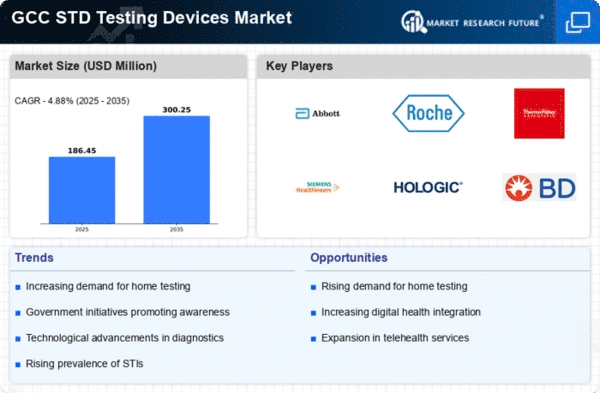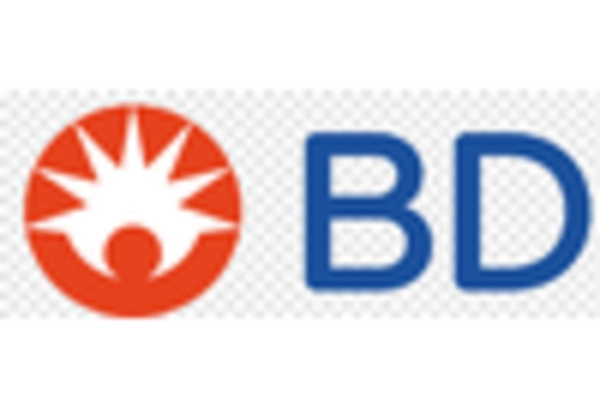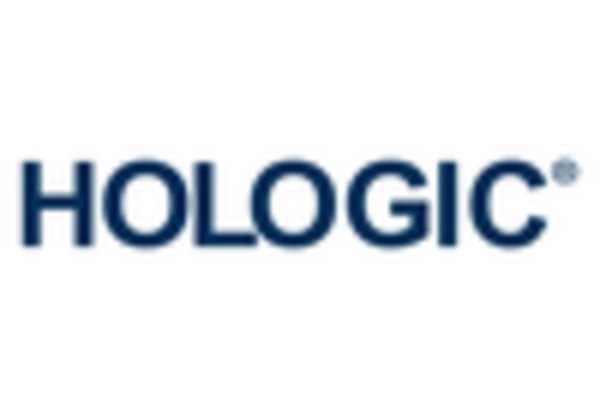Rising Prevalence of STDs
The STD Testing Devices Market is experiencing growth due to the rising prevalence of sexually transmitted diseases (STDs) in the GCC region.. Recent data indicates that the incidence of STDs has increased, prompting a greater need for effective testing solutions. This trend is likely to drive demand for testing devices, as healthcare providers and individuals seek to address the growing health concern. The increased awareness surrounding STDs has led to a heightened focus on early detection and treatment, further propelling the std testing-devices market. As a result, manufacturers are likely to innovate and expand their product offerings to meet the evolving needs of healthcare systems and consumers alike.
Increased Health Awareness
The STD Testing Devices Market is benefiting from a surge in health awareness among the population in the GCC.. Educational campaigns and initiatives aimed at promoting sexual health have contributed to a more informed public. This heightened awareness is likely to encourage individuals to seek regular testing, thereby increasing the demand for testing devices. Furthermore, as people become more proactive about their health, the std testing-devices market may see a shift towards more user-friendly and accessible testing options. The emphasis on preventive healthcare is expected to play a crucial role in shaping the future landscape of the std testing-devices market.
Government Regulations and Support
Government regulations and support play a pivotal role in shaping the std testing-devices market. In the GCC, regulatory bodies are increasingly focusing on improving public health standards, which includes the promotion of STD testing. This regulatory environment is likely to encourage manufacturers to comply with safety and efficacy standards, thereby enhancing the credibility of testing devices. Additionally, government initiatives aimed at subsidizing testing costs may further stimulate market growth. As public health policies evolve, the std testing-devices market is expected to adapt, ensuring that testing solutions remain accessible and reliable for the population.
Technological Innovations in Testing
Technological advancements are significantly influencing the std testing-devices market. Innovations such as rapid testing kits and point-of-care testing devices are enhancing the efficiency and accuracy of STD detection. These advancements are likely to attract both healthcare providers and consumers, as they offer quicker results and greater convenience. The integration of digital technologies, such as mobile applications for result tracking, is also emerging as a trend within the market. As technology continues to evolve, the std testing-devices market is expected to expand, with manufacturers investing in research and development to create cutting-edge solutions.
Growing Demand for Preventive Healthcare
The STD Testing Devices Market is witnessing a growing demand for preventive healthcare solutions.. As individuals become more health-conscious, there is an increasing emphasis on early detection and prevention of STDs. This trend is likely to drive the adoption of testing devices, as people seek to take control of their sexual health. The shift towards preventive healthcare is supported by healthcare providers who advocate for regular testing as a means to reduce the spread of STDs. Consequently, the std testing-devices market is expected to expand, with a focus on developing innovative and effective testing solutions that cater to this growing demand.
















